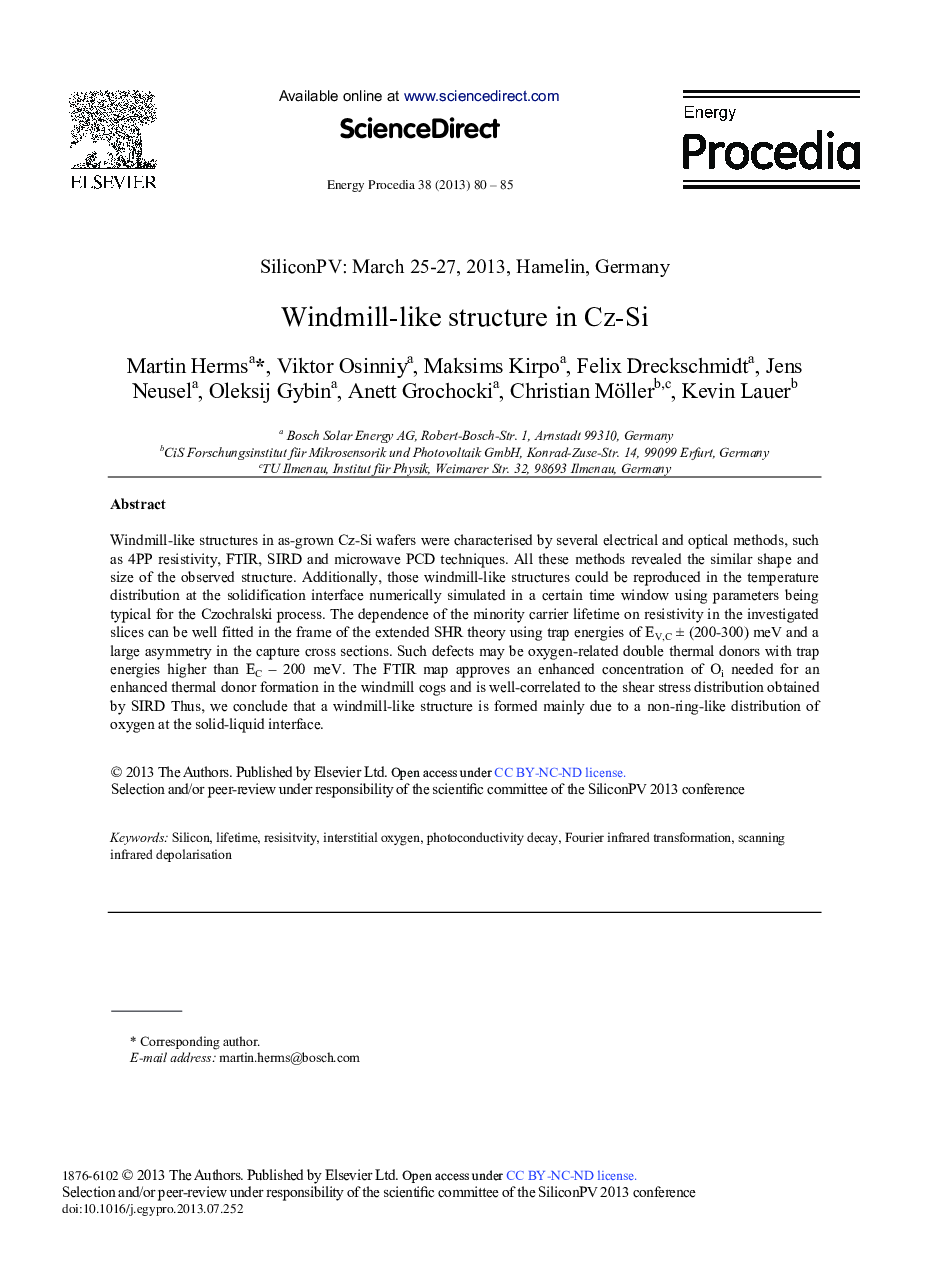| کد مقاله | کد نشریه | سال انتشار | مقاله انگلیسی | نسخه تمام متن |
|---|---|---|---|---|
| 1512593 | 1511197 | 2013 | 6 صفحه PDF | دانلود رایگان |

Windmill-like structures in as-grown Cz-Si wafers were characterised by several electrical and optical methods, such as 4PP resistivity, FTIR, SIRD and microwave PCD techniques. All these methods revealed the similar shape and size of the observed structure. Additionally, those windmill-like structures could be reproduced in the temperature distribution at the solidification interface numerically simulated in a certain time window using parameters being typical for the Czochralski process. The dependence of the minority carrier lifetime on resistivity in the investigated slices can be well fitted in the frame of the extended SHR theory using trap energies of EV,C ± (200-300) meV and a large asymmetry in the capture cross sections. Such defects may be oxygen-related double thermal donors with trap energies higher than EC – 200 meV. The FTIR map approves an enhanced concentration of Oi needed for an enhanced thermal donor formation in the windmill cogs and is well-correlated to the shear stress distribution obtained by SIRD Thus, we conclude that a windmill-like structure is formed mainly due to a non-ring-like distribution of oxygen at the solid-liquid interface.
Journal: Energy Procedia - Volume 38, 2013, Pages 80-85